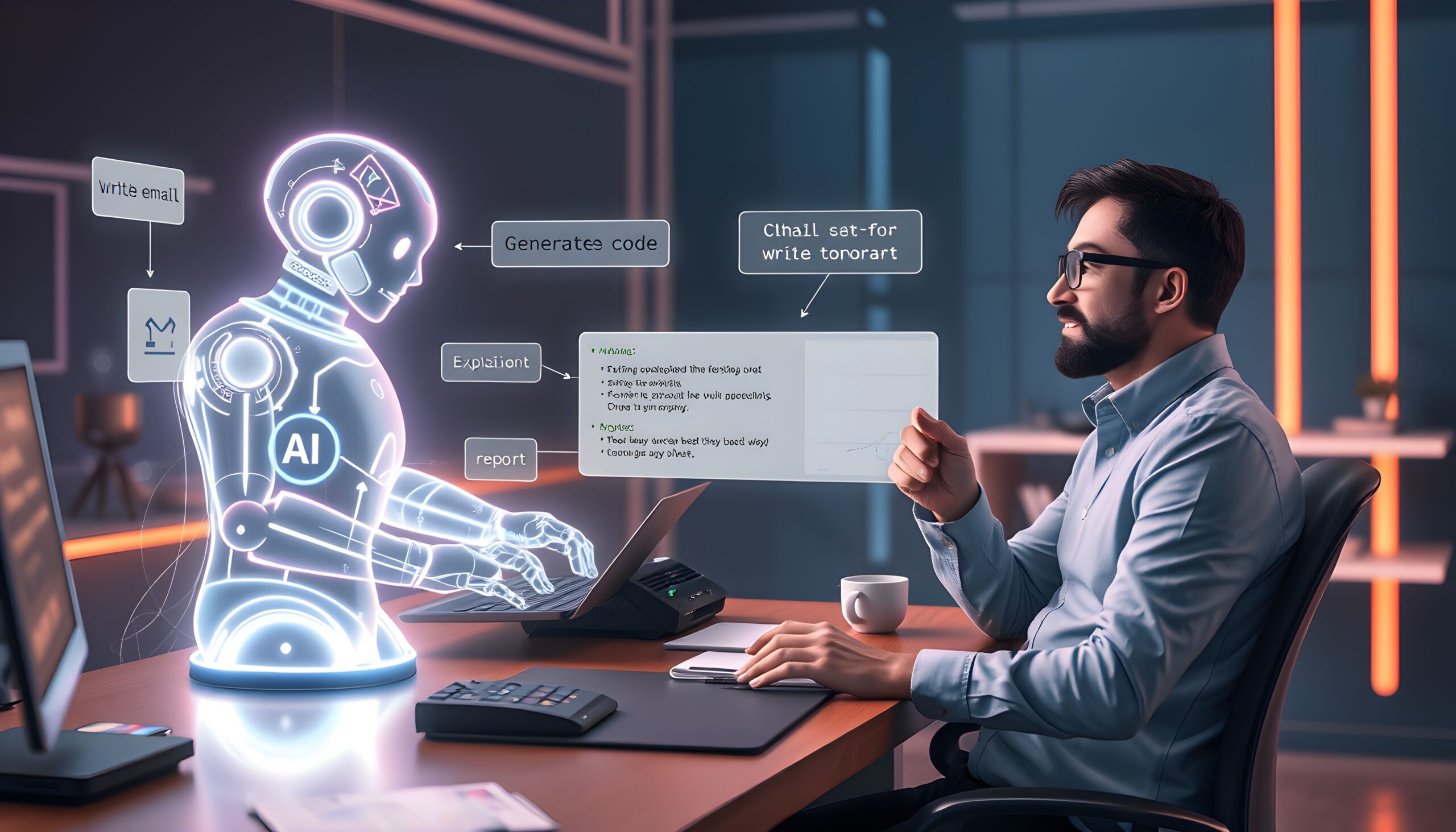The Evolution of OpenAI’s AI Voice Assistant
OpenAI has made significant advancements in artificial intelligence, particularly in the area of voice assistants. As AI technology continues to evolve, its impact on how we interact with digital tools is becoming more pronounced. The latest version of OpenAI’s voice assistant has been designed to improve both functionality and user experience. With enhancements in understanding, response generation, and adaptability, the assistant is now capable of providing more engaging and human-like interactions.
This article explores the improvements in OpenAI’s AI voice assistant, including its capabilities, the effects on users, and the broader implications for industries. As voice assistants become an integral part of daily life, understanding their potential and limitations becomes increasingly important.
Chapter 1: Key Improvements in OpenAI’s Voice Assistant
1.1 Enhanced Understanding of Natural Language
One of the most significant improvements in OpenAI’s latest voice assistant is its enhanced ability to understand natural language. The assistant can now better comprehend the context of conversations, including nuances in tone, word choice, and sentence structure. This improved comprehension allows for more meaningful and accurate responses.
In earlier versions, voice assistants often struggled with ambiguous language or complex sentences. With the new upgrades, the assistant can handle a broader range of queries and provide more appropriate answers, even when the user’s input is less than perfectly clear.
For instance, a user can now ask the assistant to “remind me about the meeting next Friday,” and the assistant will understand the exact day and time. It can also follow-up with clarifications if needed, making the conversation flow more naturally.
1.2 Improved Conversational Flow
The new AI voice assistant has been designed to hold longer, more fluid conversations. Unlike earlier versions that required users to provide specific instructions, the assistant can now engage in multi-turn dialogues, understanding context across multiple exchanges.
For example, if you ask the assistant, “What is the weather in Paris?” and then follow up with, “And how’s the traffic there?”, it will remember the previous query and provide relevant answers. This creates a more conversational and less transactional interaction, making it feel more like speaking to a human rather than a machine.
1.3 Enhanced Personalization
Personalization is another key feature in the new version of the voice assistant. By learning from interactions, the assistant can adapt to the user’s preferences over time. Whether it’s remembering frequently asked questions, adjusting the tone of responses, or providing more relevant suggestions, the assistant’s ability to personalize its behavior creates a more tailored experience.
For instance, it can offer suggestions based on past conversations, such as recommending movies or articles related to topics the user has shown interest in. The assistant becomes more intuitive, anticipating the needs of the user with each interaction.
1.4 Multilingual Support and Cultural Sensitivity
With the increased globalization of technology, OpenAI’s voice assistant now offers enhanced multilingual support. Users from various regions can communicate with the assistant in their native languages, ensuring accessibility across cultures. The voice assistant’s understanding of cultural context has also been improved, allowing it to respond in ways that are more sensitive to regional differences.
Additionally, the assistant has improved speech recognition capabilities, accommodating diverse accents and dialects. Whether a user speaks in English, Spanish, Mandarin, or another language, the assistant can engage seamlessly and respond accurately.
Chapter 2: Practical Applications of OpenAI’s Voice Assistant
2.1 Simplifying Everyday Tasks
OpenAI’s voice assistant excels in simplifying daily tasks, making life more efficient. Whether you need to set a reminder, check the weather, or send a text message, the assistant can handle these tasks effortlessly. It’s designed to make common activities quicker and more accessible, enabling users to complete them with minimal effort.
For instance, the assistant can read and respond to emails, check your calendar for upcoming events, or even schedule appointments based on your verbal instructions. It’s an indispensable tool for organizing daily routines, saving time on mundane tasks.
2.2 Boosting Productivity and Efficiency
The voice assistant is also a powerful tool for improving productivity. It helps users stay organized by reminding them about important tasks, deadlines, and events. It can even help prioritize these tasks based on urgency or importance, making it easier to manage busy schedules.
In work settings, the assistant can integrate with calendar apps, email clients, and task management tools to provide an all-in-one productivity solution. It can automate the scheduling of meetings, send reminders for upcoming tasks, and even assist with creating to-do lists. This helps users focus on higher-value activities, while the assistant handles the repetitive administrative tasks.
2.3 Improving Communication and Collaboration
In both personal and professional settings, the AI assistant can enhance communication. It can help transcribe meetings, generate meeting notes, and even suggest follow-up actions. This ensures that no key information is missed, and that all participants are on the same page, even after the meeting ends.
For remote teams, the assistant can also facilitate virtual meetings, provide real-time translations, and ensure seamless communication across different time zones and languages. This is especially important in today’s globalized work environment, where collaboration often takes place between teams in different parts of the world.
2.4 Facilitating Enhanced Learning and Education
The AI assistant can also be a valuable tool in education, helping students and educators alike. It can provide real-time explanations of complex concepts, suggest study materials, and answer academic questions. Whether you’re learning a new language or studying for an exam, the assistant can be a valuable resource for personalized learning.
For example, the assistant can quiz students, explain difficult concepts in simple terms, and provide links to relevant resources, like articles, videos, or research papers. It can also track progress over time, offering insights into areas that need improvement.
2.5 Revolutionizing Entertainment and Leisure
Entertainment is another area where OpenAI’s voice assistant has made significant improvements. By integrating with streaming services, it can recommend movies, TV shows, and music based on user preferences. Its ability to learn what the user enjoys allows for highly personalized entertainment suggestions.
Furthermore, the assistant can be integrated with smart home devices to control lights, TVs, or music systems, making it easier to navigate entertainment without needing to manually operate different devices.
Chapter 3: Ethical Considerations and Challenges
3.1 Data Privacy and Security
As with any AI technology, privacy and security are major concerns. OpenAI’s voice assistant collects and processes a wide range of personal data, including voice recordings, user preferences, and interactions. To address these concerns, OpenAI employs strong data protection measures, ensuring that all interactions are encrypted and stored securely.
Moreover, users have control over their data, with options to delete or manage interactions. Transparency regarding data usage and collection practices is crucial, and OpenAI is committed to maintaining a high level of privacy for its users.
3.2 Bias and Fairness
AI systems, including voice assistants, can sometimes exhibit biases due to the datasets on which they are trained. OpenAI has worked diligently to reduce biases in its models, ensuring that responses are fair and inclusive for all users. The assistant has been trained on diverse datasets to minimize discriminatory responses based on race, gender, or socioeconomic background.
Despite these efforts, ongoing monitoring and adjustments are necessary to ensure that the assistant remains free from bias. OpenAI continues to refine its models to enhance fairness and inclusivity.
3.3 Potential for Over-reliance on AI
As AI becomes more integrated into everyday life, there are concerns about over-reliance on technology. While the voice assistant is a powerful tool, it’s important for users to strike a balance between using AI for convenience and maintaining their own problem-solving abilities. Overuse of AI could lead to diminished cognitive engagement and reduced social interactions.
OpenAI has designed the assistant to support and enhance human capabilities, rather than replace them entirely. The key is ensuring that AI remains a helpful tool, not a crutch that diminishes human interaction or critical thinking.
3.4 Ensuring Ethical AI Deployment
The deployment of AI voice assistants raises ethical questions about their potential misuse. For instance, they could be used to manipulate users or impersonate individuals. OpenAI is committed to ensuring that its voice assistant is used responsibly and ethically.
The company has implemented safeguards to prevent malicious use and is continually working to refine its policies and practices to ensure that AI technology benefits society as a whole.
Chapter 4: The Future of AI Voice Assistants
As OpenAI continues to improve its voice assistant, it is clear that AI will play an increasingly significant role in everyday life. The enhanced capabilities of the voice assistant are just the beginning, and as AI technology evolves, new possibilities will emerge.
In the future, we can expect even more personalized experiences, as the assistant continues to learn from user interactions. With the potential for deeper integration with smart devices, the assistant could become the central hub for managing homes, work environments, and entertainment systems.
Ultimately, OpenAI’s voice assistant is not just a tool but a glimpse into the future of AI. As it continues to evolve, its potential to improve lives, enhance productivity, and foster more meaningful interactions with technology will be realized to an even greater extent.
OpenAI’s Voice Assistant and Its Role in Transforming Technology
OpenAI’s enhanced AI voice assistant represents a major leap forward in how we interact with technology. Its ability to understand natural language, engage in fluid conversations, and adapt to individual preferences makes it a truly innovative tool. As it continues to evolve, it will undoubtedly play an even more prominent role in daily life, transforming how we work, communicate, and engage with entertainment.
While there are challenges to overcome, particularly in terms of privacy, security, and bias, the benefits of this technology far outweigh the risks. OpenAI is taking proactive steps to address these concerns, ensuring that its voice assistant remains a trusted and valuable tool for users worldwide.
Feel free to check out our other website at :aibrainpowered.com













